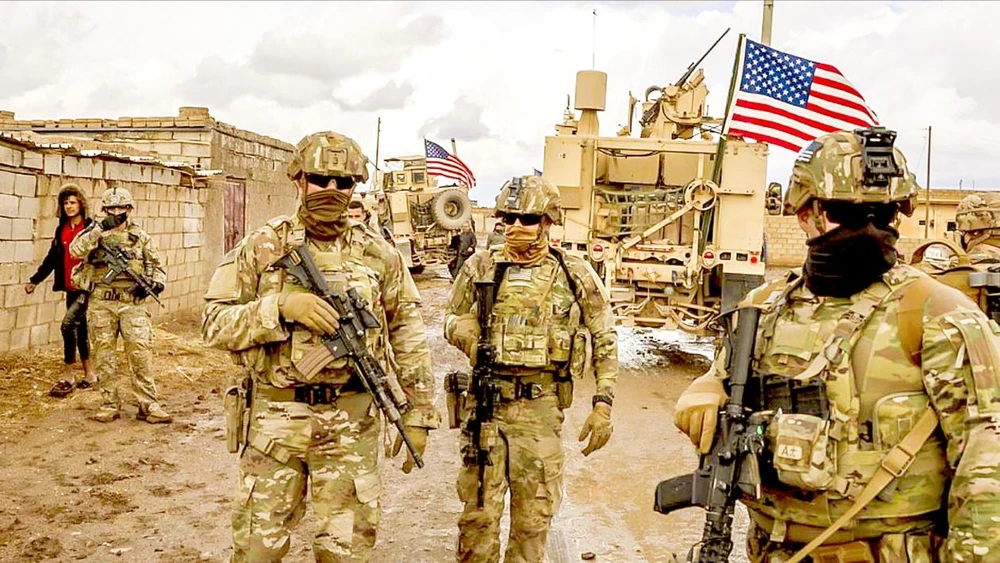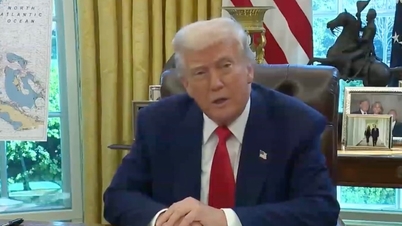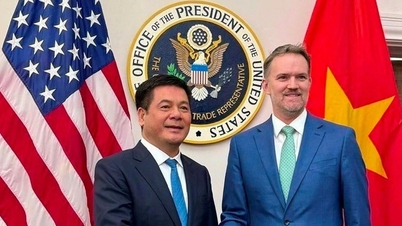According to Reuters, the US's support for Israel in successfully preventing Iran's missile and drone attack on April 13 shows that the US is well prepared militarily as Iran and Israel move from a shadow war to a direct confrontation.

Not ready for the big conflict
However, observers say US forces are not ready for a major, prolonged conflict in the Middle East and the US Defense Department may have to reconsider its assumptions about military needs in the region if the crisis deepens. Michael Mulroy, a former deputy assistant secretary of defense for the Middle East under President Donald Trump's administration, said the US does not have enough forces to support Israel in a direct war with Iran. Since Hamas's attack on Israel led to the conflict in the Gaza Strip, the US has sent thousands of troops to a region that has seen a declining US presence for years.
The US strategy of relying on reinforcements could be tested if Iran and Israel break the taboo and openly attack each other militarily. “This means the US has to rethink the idea of the necessary military capabilities that Washington must maintain in the region,” General Joseph Votel, former commander of US troops in the Middle East, stressed.
Shortage of staff
Many former US officials share the same opinion that the US helped Israel successfully prevent Iran's attack thanks to the support of US intelligence, which helped the US Department of Defense predict the time and target of Tehran's attack.
General Michael “Erik” Kurilla, head of US Central Command, told US lawmakers last month that he had requested more troops be sent to the Middle East, something President Joe Biden’s cabinet has deemed a lower priority than other challenges.
In a written statement to the US House Armed Services Committee, General Kurilla said that the lack of intelligence personnel has created many gaps in detecting and disrupting the plots of extremist organizations. General Kurilla's comments were partly reflected in the war in the Gaza Strip when the lack of intelligence on the Houthi arsenal in Yemen made it difficult to attack the Houthi missile and drone warehouses.
However, sending more troops to the Middle East and strengthening intelligence facilities in the long term will be difficult because the US military is distributed throughout Europe and Asia is also a focus. A US official, speaking on condition of anonymity, said it was unclear whether Washington was ready to withdraw forces from Asia or Europe if tensions in the Middle East continued to rise. The last time the US deployed thousands of troops to the Middle East was under President Donald Trump.
Recent tit-for-tat attacks between Iran and Israel have raised fears of a regional war that Washington is trying to prevent. Iran does not appear to want a full-scale war with Israel, according to US officials, with the latest move downplaying the significance of the April 19 attack in the central Iranian province of Isfahan.
MINH CHAU
Source


![[Photo] Da Nang: Hundreds of people join hands to clean up a vital tourist route after storm No. 13](https://vphoto.vietnam.vn/thumb/1200x675/vietnam/resource/IMAGE/2025/11/07/1762491638903_image-3-1353-jpg.webp)















































































































Comment (0)